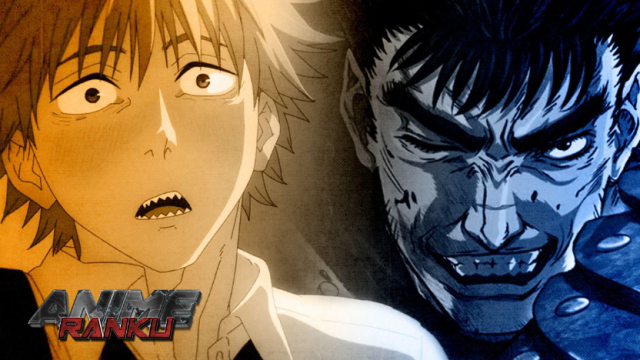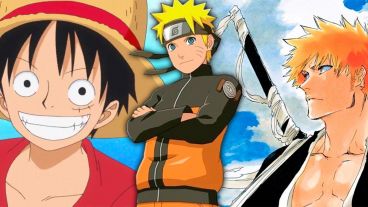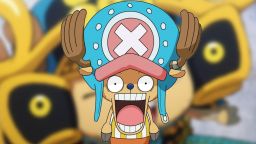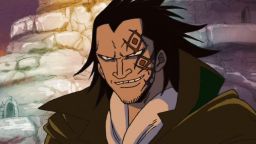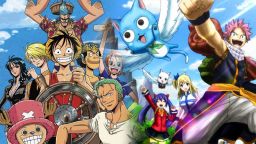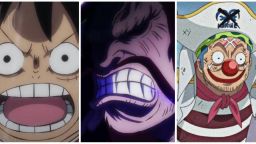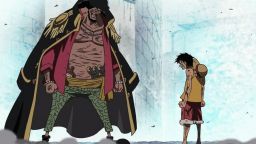In the worlds of manga and anime, Chainsaw Man occupies a peculiar and fascinating position. Because Chainsaw Man and those other series feel like a mix of shonen and seinen, similar to Jujutsu Kaisen and Attack on Titan, some fans might argue that they would have been better as seinen series. This could have benefited gritty heroes like Denji and Eren Yeager, but the creators refrained from doing so for a reason.
In the end, Chainsaw Man is a shonen, and the intrepid Denji, the protagonist, is made as such. Even though his character arc feels similar to Guts' in Berserk, these two characters have some significant differences between them because he is meant to be a strangely inspirational and bluntly entertaining young hero. Denji went through a lot of the same things that Guts did, but a few outside influences prevented him from developing into Chainsaw Man's own "black swordsman."
Chainsaw Man and Other Shonen Deconstructions are Still Shonen

Denji and Guts share a lot of storytelling themes and remarkably similar character arcs. Both of them lack a real family to return to because Denji lost his father as a child and Guts never knew either of his parents. As a result, they have no choice but to look to the future for success and fulfillment, but there are many challenges along the way. Makima and Griffith are the best friend and saviors who betrayed Denji and Guts, respectively.
These heroes even partially or totally lose their best friends, with Power getting killed at Makima's hands and Casca's mind being shattered after the Eclipse. These heroes also have dark and brutal powers -- namely, Denji's savage Chainsaw Man abilities and Guts' frightening berserker armor. However, the admittedly porous boundary between shone and seinen still sets Denji and Guts apart.
Chainsaw Man is a blatant deconstruction of the demographic, yet it is still considered shonen despite its graphic violence and crude antiheroes. Denji, the main character, is the one who is most affected by this because he still identifies more with Yuji Itadori, Ichigo Kurosaki, and Mikasa Ackerman than he does with other seinen leads like Guts and Thorfinn Karlsefni. The shonen vs. seinen divide made sure that Denji and Guts took different paths and had attitudes to match, despite the fact that they shared similar dark experiences and challenging character arcs.
Seinen heroes might reach the depths of true darkness and hit rock bottom, such as Thorfinn after his father's death and Guts after the Eclipse, where Griffith joined the God Hand as Femto. Seinen has no limits for how dark these heroes and their quests may become, but shonen does have boundaries, and Denji is designed accordingly. His story is a savage shonen deconstruction, but not a complete one, so his character still retains an inspiring, lovable and sympathetic core no matter what happens to him. Denji only outwardly subverts shonen trends with his bloodthirsty attitude and sleazy pervert behavior, only superficially acting like a Berserk-style antihero. However, he still has shonen DNA in him while Guts does not, which saves Denji from reaching the true depths of despair and darkness.
Denji Was Also Saved From Guts' Darkness By Chainsaw Man's Humor

No matter how much Denji criticizes the shonen audience, he remains a shonen hero, and this influences both his character arc and his humor for both his own amusement and that of the audience. While the humor in shonen and seinen frequently varies—Grand Blue, for example, is a hysterical comedy—and Attack on Titan is a well-known example of a dark shonen series, there are some clear distinctions between the two in a Guts vs. Denji comparison.
Berserk does have comic relief, but notably, none of it comes from Guts himself, and he's never in the mood for jokes. Instead, he might roll his eyes at everyone else's antics or jokes, such as Puck's or Isidro's comedy routines, while Guts has no internal humor at all. He's too much of a seinen antihero for that, while Denji has a totally different approach. The latter is a total shonen-style comedian, and he does it not just to cheer himself up but to make his friends and certainly the audience laugh. Denji's internal humor acts as an emotional bulwark against the darkness and suffering in his life, allowing him to laugh off issues such as his poverty or Power and Makima betraying him.
Although a part of Denji is still hurt by these events, he can avoid the worst of it and maintain some optimism, hope, and genuine enjoyment of his life by using humor to lift his spirits. He differs from Guts and Thorfinn in this regard because neither of them would ever claim to enjoy their lives or laugh off their difficulties. Guts never use humor, and he's not the type, but humor is a crucial coping mechanism for hardship. Even though Denji and Guts share some character arcs, Denji makes good use of it, making the outcome significantly different and working entirely in his favor.
